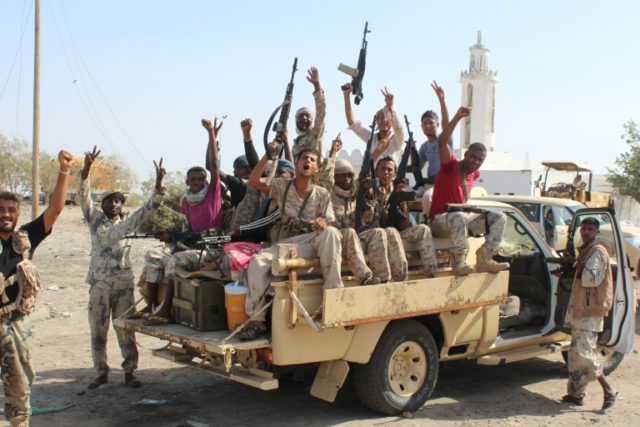Al-Qaeda has suffered some battlefield setbacks in chaotic Yemen, but the terror organization still controls highly profitable oil fields in the southern regions of the country and has been taking advantage of fuel shortages to reap huge profits.
Reuters portrays the al-Qaeda resurgence in Yemen as a “striking unintended consequence of the Saudi-led intervention in Yemen in March 2015, prompted by gains made against the government by Houthi rebels allied to Saudi’s arch-enemy, Iran.”
The terrorists had taken control of some 375 miles of Yemen’s southern coastline, making millions per day by extorting the national oil company and “taxing” goods passing through ports it controlled, before a Yemeni military offensive in late April began pushing al-Qaeda out of the cities.
Unfortunately, al-Qaeda has become an accepted fact of life for Yemenis, some of whom said they actually preferred the stability brought by al-Qaeda control. The terrorists have also reached profitable understandings with local tribes and smugglers. Ironically, blockades and embargoes designed to strangle insurgent forces in Yemen have helped al-Qaeda make money, because fuel is so scarce, and good smuggling networks are a premium resource.
Reuters notes one of the reasons they were so easily driven away from the coastline is that they did not want to lose public sympathy by fighting a blood battle against the military, with inevitable collateral damage. Al-Qaeda now has enough money and connections to blend into the civilian populace of southern Yemen — a weed that cannot easily be pulled, despite promises from Yemen and Saudi authorities that a relentless campaign will be conducted against them.
A more optimistic note is sounded by The National, which suggests the terrorist group made a critical mistake by over-reaching and trying to establish an ISIS-style terror state — complete with a rudimentary civil administration and taxation — along the Yemeni coast.
In this analysis, the normally ephemeral al-Qaeda made itself into a solid target, which the Yemeni military will be able to destroy, much as the United States tore apart al-Qaeda infrastructure in Afghanistan after 9/11.
Also, The National predicts Yemen will eventually get its act together, along with the governments of Syria and Iraq, and disrupt al-Qaeda’s hold on the public imagination by offering a “counter-narrative of good governance.”
“Everywhere extremists have taken control of cities and towns – Afghanistan, Iraq, Syria – they have done so because of prior instability. Whether ISIL or Al Qaeda, their success is rooted in the failure of politics. These groups have been created by bad governance and they can be undone by good governance,” the editorial asserts.

COMMENTS
Please let us know if you're having issues with commenting.